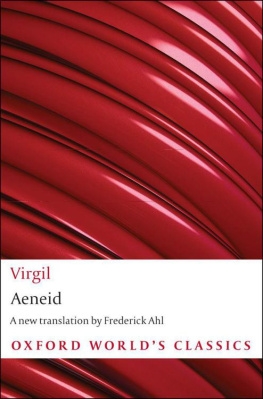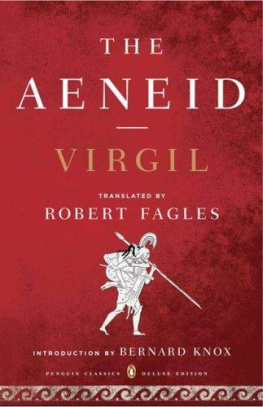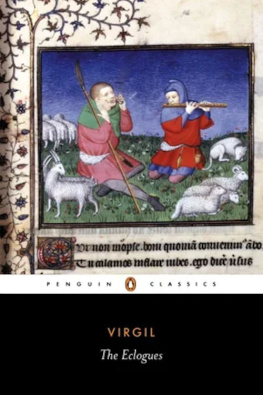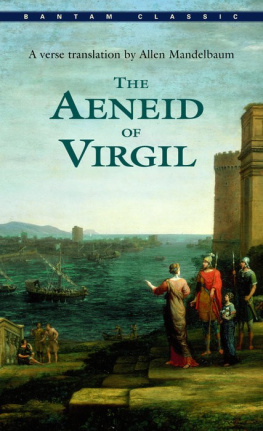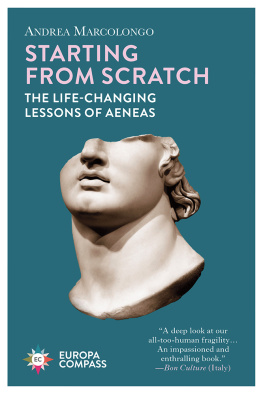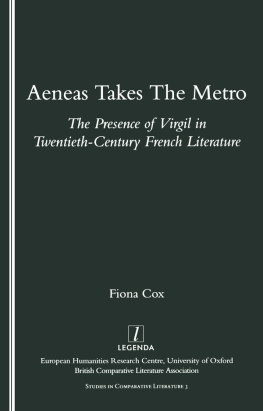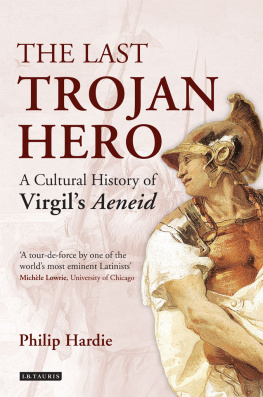
Great Clarendon Street, Oxford OX2 6DP
Oxford University Press is a department of the University of Oxford.
It furthers the Universitys objective of excellence in research, scholarship,
and education by publishing worldwide in
Oxford New York
Auckland Cape Town Dar es Salaam Hong Kong Karachi
Kuala Lumpur Madrid Melbourne Mexico City Nairobi
New Delhi Shanghai Taipei Toronto
With offices in
Argentina Austria Brazil Chile Czech Republic France Greece
Guatemala Hungary Italy Japan Poland Portugal Singapore
South Korea Switzerland Thailand Turkey Ukraine Vietnam
Oxford is a registered trade mark of Oxford University Press
in the UK and in certain other countries
Translation, explanatory notes, bibliography, indexed glossary Frederick Ahl 2007
Introduction Elaine Fantham 2007
The moral rights of the authors have been asserted
Database right Oxford University Press (maker)
First published 2007
First published as an Oxford Worlds Classics paperback 2008
All rights reserved. No part of this publication may be reproduced, stored in a retrieval system, or transmitted, in any form or by any means, without the prior permission in writing of Oxford University Press, or as expressly permitted by law, or under terms agreed with the appropriate reprographics rights organization. Enquiries concerning reproduction outside the scope of the above should be sent to the Rights Department, Oxford University Press, at the address above
You must not circulate this book in any other binding or cover
and you must impose the same condition on any acquirer
British Library Cataloguing-in-Publication Data
Data available
Library of Congress Cataloging in Publication Data
Virgil.
[Aeneis. English]
The Aeneid/Virgil; translated with notes by Frederick Ahl; with an introduction
by Elaine Fantham.
Includes bibliographical references and index.
1. Epic poetry, LatinTranslations into English. 2. Aeneas (Legendary character)Poetry.
3. LegendsRomePoetry. I. Ahl, Frederick, 1941II. Title.
PA6807.A5A38 2007 873.01dc22 2007014605
Typeset by Cepha Imaging Private Ltd., Bangalore, India
Printed in Great Britain
on acid-free paper by
Clays Ltd, St Ives plc.
ISBN 9780-19923195-9
13579 10 8642
OXFORD WORLDS CLASSICS
For over 100 years Oxford Worlds Classics have brought readers closer to the worlds great literature. Now with over 700 titlesfrom the 4,000-year-old myths of Mesopotamia to the twentieth centurys greatest novelsthe series makes available lesser-known as well as celebrated writing.
The pocket-sized hardbacks of the early years contained introductions by Virginia Woolf, T. S. Eliot, Graham Greene, and other literary figures which enriched the experience of reading. Today the series is recognized for its fine scholarship and reliability in texts that span world literature, drama and poetry, religion, philosophy, and politics. Each edition includes perceptive commentary and essential background information to meet the changing needs of readers.
Refer to the to navigate through the material in this Oxford Worlds Classics ebook. Use the asterisks (*) throughout the text to access the hyperlinked Explanatory Notes.
OXFORD WORLDS CLASSICS

VIRGIL
Aeneid

Translated with Notes by
FREDERICK AHL
With an Introduction by
ELAINE FANTHAM

OXFORD WORLDS CLASSICS
AENEID
VIRGIL was born near Mantua in northern Italy in 70 BC and lived through the death-struggles of the Roman Republic and the establishment of Augustus as Emperor. He wrote the Eclogues, a collection of short pastoral poems c.4238 BC and became associated with Maecenas, the millionare aesthete and powerful associate of Augustus, who was a great patron of poets. He composed a substantial poem on country life, the Georgics, from about 37 to 29 BC. The next ten years he spent working on his epic poem, the Aeneid, which dramatizes the story of the founding of Rome. Virgil died at Brindisi in 19 BC on his way home from a trip to Athens, leaving his epic not fully revised. It was immediately recognized as the greatest masterpiece of Roman poetry and of all Roman literature, a position which it has never lost.
FREDERICK AHL teaches Classics and Comparative Literature at Cornell University. He has also taught at College Year in Athens, and has performed in and directed a wide range of plays in Greece and the USA. Among his works are Lucan: An Introduction (1976) Metaformations (1985) and Sophocles Oedipus: Evidence and Self-conviction (1991).
ELAINE FANTHAM taught at Princeton University from 1986 to 2000. Her most recent books include Roman Literary Culture (1996), Ovids Metamorphoses (Oxford Approaches to Literature, 2004), and The Roman World of Ciceros De Oratore (2004). She has introduced and annotated Virgils Georgics for Oxford Worlds Classics.
CONTENTS
For Elaine and Nicola
ACKNOWLEDGEMENTS
MANY people helped me in many ways to bring this work to completion, but none more than Elaine Fantham and Nicola Minott-Ahl, to whom I dedicate this volume. Dealing with an absent-minded recluse cannot have been easy. Judith Luna really belongs in the dedication too; her wisdom and clear judgement saved me from many errors. Elizabeth Stratford has also helped me catch many slips and infelicities.
I am deeply grateful to John and Marie Corbin of the University of Kent, who so often shared their home with me, and to Martin Winkler of George Mason University, a dear friend over many years, who maintained unflagging support. Thanks also to some other Ahls: Kate, Sid, and Mary, for their tolerance and encouragement. Then there are those who introduced me to Virgils epic: T. A. Williams, Malcolm Wilcock, and J. P. Sullivan; Archie Ammons, who gave me the courage to write poetry; Virgil Espino of the Texas Military Institute, who helped me grasp how much I needed to learn. Many colleagues (some now deceased) at various institutions have, over many years, taken time to discuss and dispute ideas (often hotly) with me: R. D. Armstrong, Rhiannon Ash, R. G. Basto, Martin Bernal, Max Brecher, Jonathan Culler, Michael Davies, Martha Davis, John Fitch, G. Karl Galinsky, John Garthwaite, G. K. Gresseth, Brent Hannah, Robert Helbling, Roald Hoffmann, Gail Holst-Warhaft, Thomas Hubbard, Pat Johnson, Jane Wilson Joyce, Ian Kidd, Douglas Little, Don Maguire, Martha Malamud, Gordon Messing, Katrina Neff, S. Georgia Nugent, Peter Kuniholm, Dolores OHiggins, Kerrill ONeill, Bill Owens, Douglass Parker, Michael Paschalis, Sue Payne, Arthur Pomeroy, Pietro Pucci, Michael Putnam, Andrew Ramage, Nancy Ramage, Jay Reed, Hanna Roisman, Joseph Roisman, Jeffrey Rusten, Janice Siegel, Victoria Surliuga, Christiana Sogno, Michael Stokes, Lynette Thompson, Tobias Torgerson, Giannis Tsiogas, Michael Vickers, Raina Weaver, Winthrop Wetherbee, and Frederick Williams. I am especially grateful to Mike Black of Hobart and William Smith Colleges who made it possible to record excerpts of the translation for the Oxford University Press website. A word of thanks also to my colleagues at College Year in Athens and the Athens Centre, especially Steve Diamant, Rosemary Donnelly, Kimon Giokarinis, John Raisch, Rhea Scourta, and Sally Tong; and to friends now gone: Alan Ansen, Carol Buckley, Dan Booth, Robert Farrell, Lucianne Katzenberger, David Keller, and David Wyatt. Last, but not least, I thank Clayton and Lucia Minott, for whom this translation has a special importance, and Jordan and Olivia Cruger who, I hope, will some day read it.
Next page
